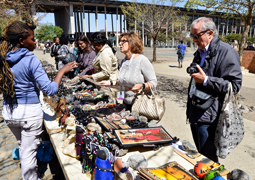
State-owned enterprises’ (SOEs) dismal performance is an ongoing concern and for this reason, Ms Mmabatho Mokause, a permanent delegate to the National Council of Provinces (NCOP), sponsored a motion for debate yesterday in the NCOP on the Positioning of state-owned enterprises as catalysts for economic growth and development to put their state of affairs under scrutiny.
She began by saying that no successful country is run well without these sorts of enterprises, because they are catalysts for industrialisation. However, to function well, they require a capable state that positions them strategically to drive development, upskill the nation and grow the economy to meet the needs of the people.
In South Africa, however, Ms Mokause said, “Our SOEs are a victim of state capture. As a result, they contribute to our growing debt, dysfunctional management that has been going on for decades, and the deep problem of political incompetency.”
Denel is a case in point. It used to be the most innovative SOE, but has been run down until it made well over R20 billion in losses in 2019/20. It can’t pay its workers and has received audit disclaimers of irregular and fruitless expenditure in successive years.
Then there is the South African Airways (SAA), which has failed repeatedly, and the South African Broadcasting Corporation, embroiled in a muddy pool of incompetency. Transnet too had woeful losses of R2 billion, when not long ago, it was a profit-making company.
Worst of all is Eskom, Ms Mokause pointed out, which continues to swim in a pool of debt and make financial losses. It’s continuing failure to guarantee energy supply is curtailing economic growth. “We must ask ourselves, as legislators: what would be a state of our nation be if Eskom continues to be run down to the ground due to ideological incompetency? If we allow Eskom to fail, that will signal the decline of state’s role to fulfil its developmental mandate,” she warned.
Contributing to the debate, the Minister of Public Enterprise, Mr Pravin Gordhan, proclaimed that the meaning of development has changed. At its heart is inclusive growth based on a mixed economy that bring together the private sector and the state to address the complex challenges of economic development in the context of climate change and Covid-19. The key is to use policies to return the economy to where it was before, while addressing the need to position the state to address the lack of vaccine manufacturing capabilities.
It’s the development of human capital, up-skilling of the population and their enterprising qualities that will contribute to inclusive growth, Mr Gordhan said. SOEs’ role is a strategic one, of providing innovative capabilities, he added. Given the state of SOEs, decisions need to be made about which of them we should reconstruct, which ones we must abandon and which do we need that currently do not exist.
Another NCOP delegate, Mr Mlindi Nhanha, placed South Africa’s SOEs at the heart of our economic failure. “They are the antithesis of what we seek to achieve,” he claimed. “It’s time for them to close shop and let government govern and let business to do business,” he retorted.
According to NCOP delegate Ms Lindiwe Bebee there are some pockets of hope. She gave Metrorail, as an example. “It transports well over 700 000 of our country’s labour force, who contribute to our GDP [gross domestic product].” And its modernisation, she said, will contribute to an integrated public transport model that will contribute to inclusive growth. As for Transnet, investment to expand ports and locomotive capacity to increase freight distribution and market value will contribute to economic development.
Another delegate, Mr Thembinkosi Apleni, agreed that if run well, SOEs can contribute positively to South Africa’s political economy. However, “Policies mean nothing if there is no political will to tackle corruption and put ethics at the centre of their business.”
Mr Petrus de Bruyn, another delegate to the NCOP, agreed with this. “SOEs are crucial in bringing about economic development, but they have been turned into bottomless pits of corruption, sadly, without no consequences.” Robust oversight is needed over the SOEs if they are to be returned to their former glory, he stated.
If we are having this debate today, “what were we doing in the last 27 years,” asked delegate Mr Dennis Ryder. Denel used to be the most innovative company we ever had, “now it’s begging for survival because of the personal enrichment of cadres. Only the carcass remains today.” The solution is to “deregulate and to centralise, and get things done”.
Contrary to popular view, said Mr Jomo Nyambi, House Chairperson responsible for committees in the NCOP, SOEs are not a panacea to all our developmental challenges. Instead what is needed is for others to “break in pursuit of economic growth”. “We are the first to acknowledge that a capable and ethical state is an antithesis of corruption. We can ill-afford to analyse what happened in the past; now we need to determine what needs to be done through consequence management,” Mr Nyambi stated.
In conclusion, Ms Mokause highlighted the fatal role corruption has played in rising social inequalities and government debt. There is a natural interest to promote SOEs as catalysts for economic growth and development, she pointed out, but this cannot take place under incompetent and unethical leadership. Efficient management and technology can reposition SOEs as driving forces for economic growth.
Abel Mputing
25 November 2021

